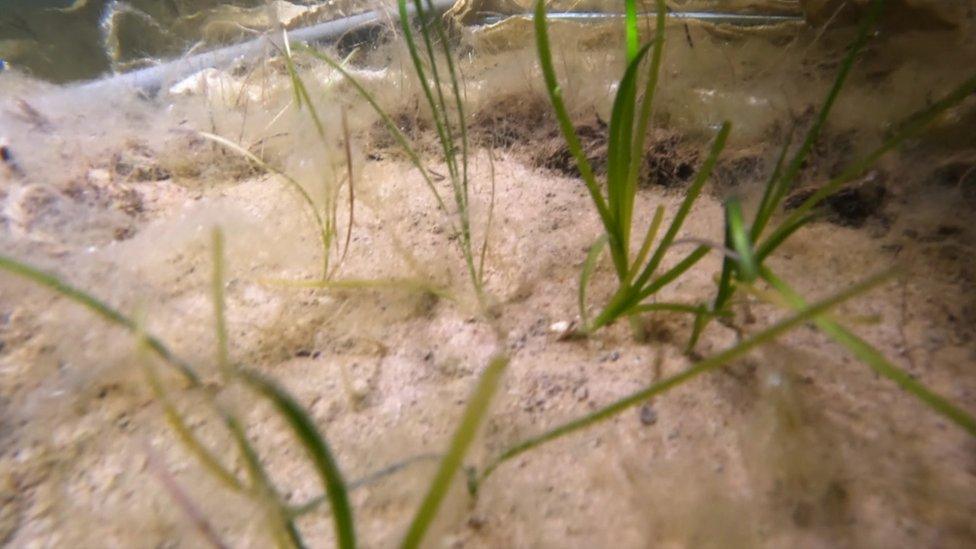Care home residents in Devon and Cornwall take virtual ocean plunge
- Published
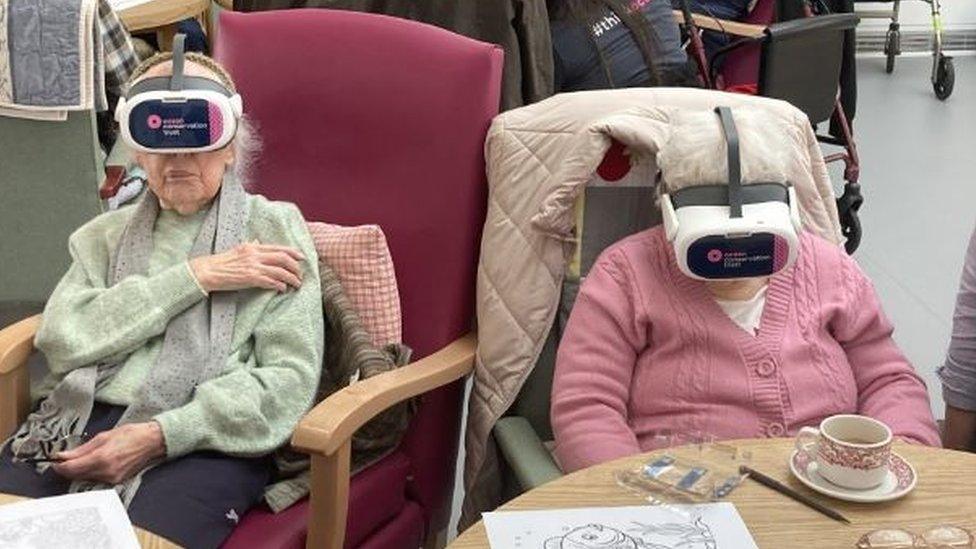
The VR session was run by the Ocean Conservation Trust
Residents in care homes and hospitals have been experiencing the ocean depths with the use of virtual reality.
The Ocean Conservation Trust (OCT), the charity behind the National Marine Aquarium, took headsets into centres in Devon and Cornwall.
The OCT said taking a virtual plunge could help those with dementia.
Mavis, 94, said the experience was "marvellous, I saw a lot of things... all the fish under the sea".
She added: "And a man was swimming under the sea, with his apparatus on and everything - how did they get all that in there?"
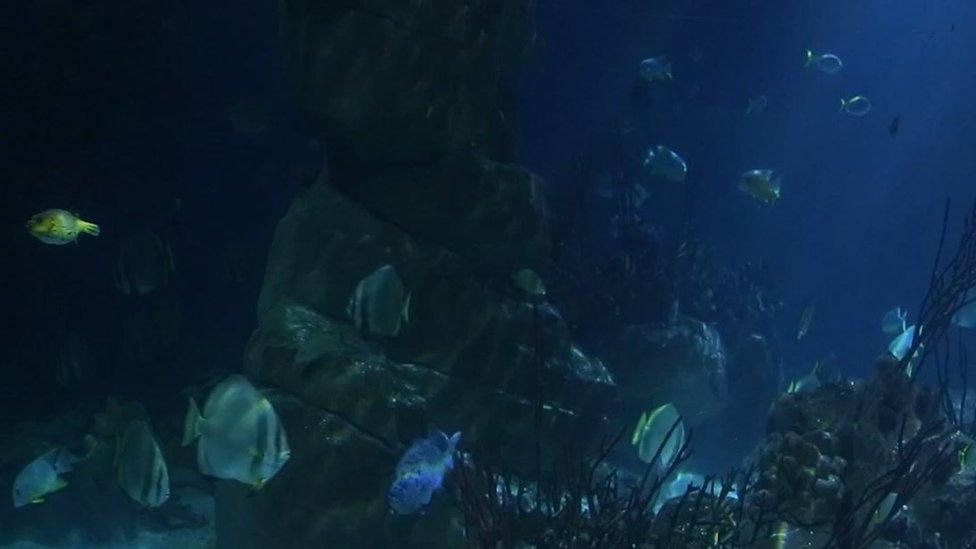
Residents can view the ocean through the headsets
Freyja Thomson-Alberts, from the OCT, said VR experiences included scenes from inside the aquarium, the sea around Plymouth, swimming with sharks and from coral reefs all over the world, including the Great Barrier Reef.
She said the project began when a care home asked if the aquarium could visit "with some animals" after seeing penguins visiting a home in Wiltshire.
Ms Thomson-Alberts added: "We don't have penguins or animals we can take out so we offered up headsets and it was a hit, they loved it.
"It just organically grew from there, a lot of care homes started inquiring."
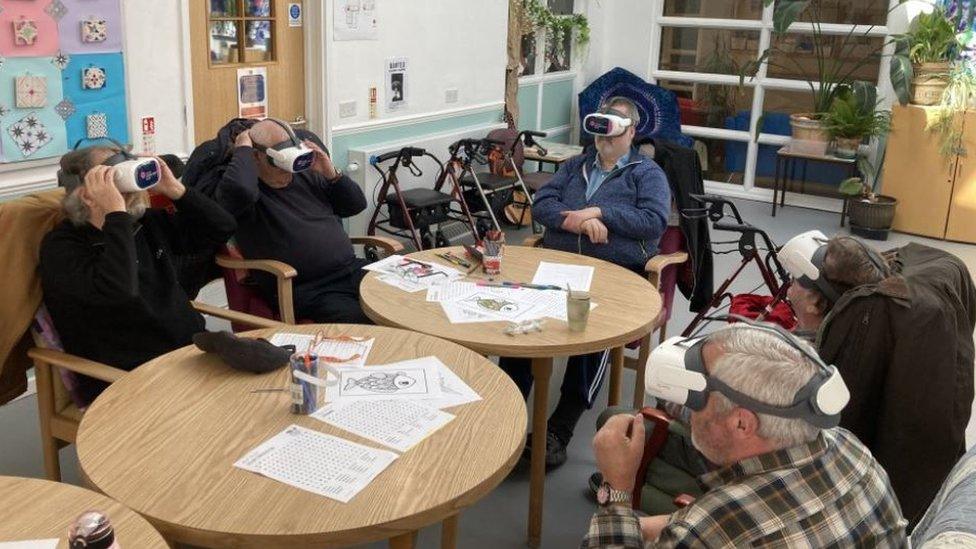
Age Concern said the sessions made a huge difference for those taking part
She said the sessions were an "opportunity to make the ocean more accessible for people", adding: "It's really difficult for people to visit the ocean if they are in a care home or hospital."
The charity has now invested £10,000 in new headsets because "accessibility to the ocean is so important".
Bryony Rawlings from Age UK Plymouth said: "These sessions... are really, really impressive in terms of the technology they are able to deliver and they make a huge difference to our clients.
"It makes a difference in a way you wouldn't expect."
She said the sessions made the aquarium more accessible for people with dementia.
"It's a really interesting use of technology and it really enriches what we do here."

Follow BBC Devon on X (formerly Twitter), external, Facebook, external and Instagram, external. Send your story ideas to spotlight@bbc.co.uk, external.
Related topics
- Published13 August 2023
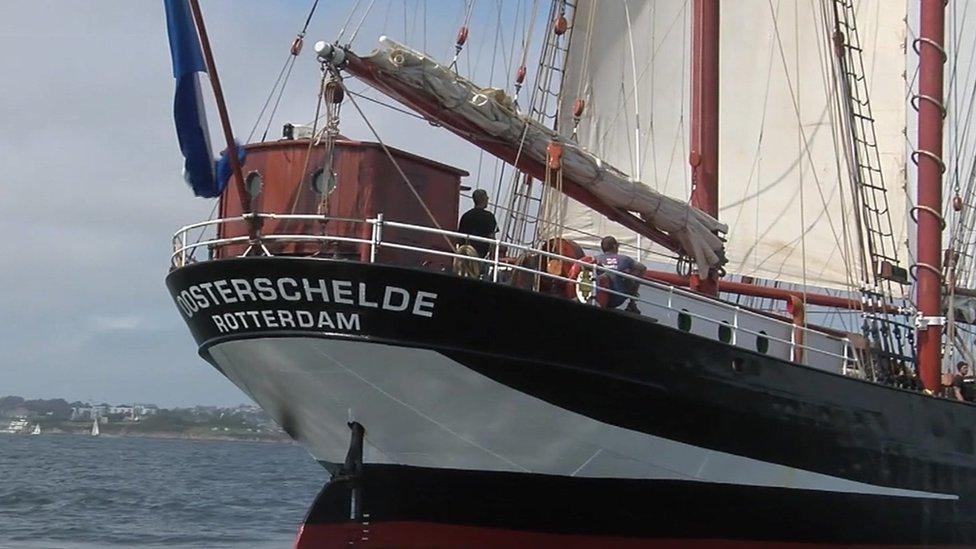
- Published20 December 2022
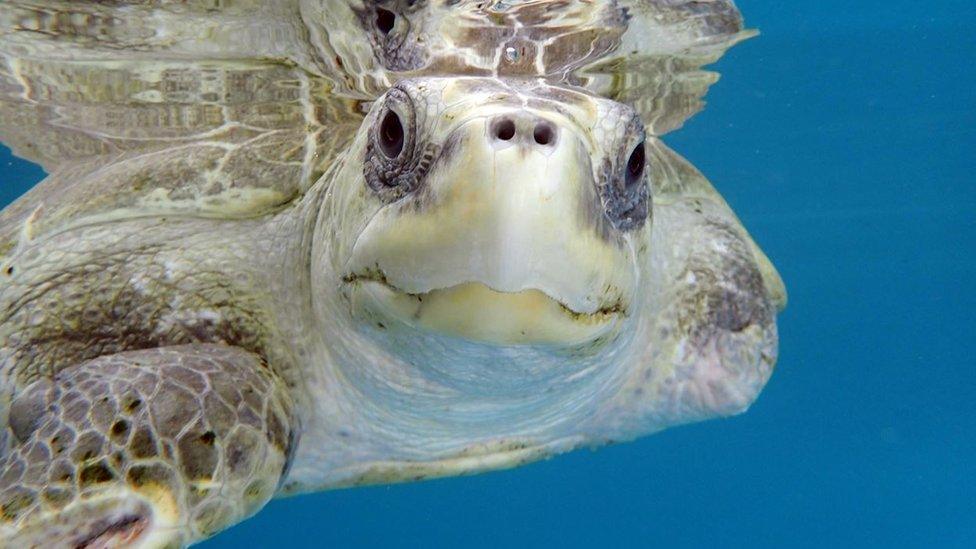
- Published3 May 2022
